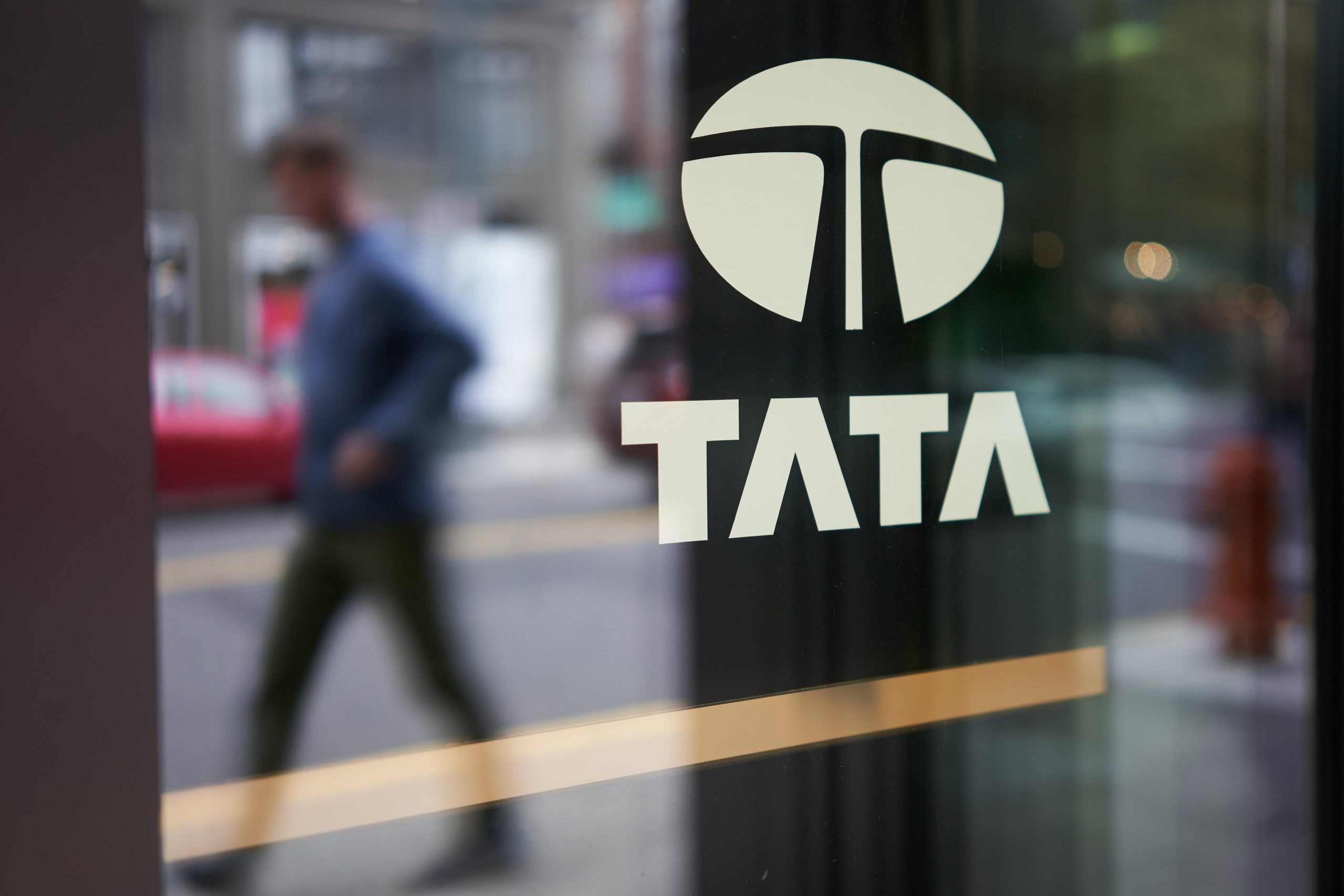This site uses cookies to provide you with a great user experience. By using BondbloX, you accept our use of cookies.
Bond Market News
CMT Launches S$ Bond; Sri Lanka Downgraded to CCC; BBVA-Sabadell Merger Scrapped; Amundi Warns SBI Over Aussie Coal Project
November 30, 2020


S&P closed higher by 0.2% while Nasdaq outperformed, up 0.9%. US 10Y Treasury yields fell 2bp on Friday while the 2s10s curve steepened over the week by 3bp. This week sees ISM and US payrolls data from the US, preliminary CPI numbers from the Eurozone and PMIs from China. US IG CDS spreads tightened 1bp and HY spreads tightened 3.6bp. EU main CDS spreads tightened 0.3bp while crossover CDS spreads tightened 2.9bp. Asia ex-Japan CDS spreads were flat and Asian equities have opened mixed to start the week.
Bond Traders’ Masterclass – Two Days to Go
Sign up for the upcoming sessions on Understanding New Bond Issues & Credit Rating on Wednesday, December 2 and Using Excel to Understand Bonds on Thursday, December 3. These are more advanced sessions focused on the primary markets, credit ratings and using Excel for bond calculations. These modules are specially curated for private bond investors and wealth managers. Thursday’s session has limited seats as it is a hands-on interactive session conducted by ex-Credit Suisse trader George Thomas so do sign up before seats sell out. Click on the image below to register.
Register today to avail a 12.5% discount on the Masterclass package
New Bond Issues
- CMT MTN S$ 12yr @ 2.35% area

Ronshine China raised $150mn via a 364-day note at a yield of 5.25%. Proceeds from the unrated issue will be used for debt refinancing.
New Bond Pipeline
- HK Airport Authority $ PerpNC5.5/ PerpNC7.5
Rating Changes
- Fitch Downgrades Sri Lanka to ‘CCC’
- Fitch Downgrades South African Banks to ‘BB-‘/Negative on Sovereign Downgrade
- Ireland-Based Packaging Producer Smurfit Kappa Group Outlook Revised To Positive By S&P On Equity Raise; ‘BB+’ Rating Affirmed
- Zhejiang Geely Holding And Subsidiary Geely Auto ‘BBB-‘ Ratings Affirmed By S&P; Off Watch Negative; Outlook Negative
- Yango Group Rating Withdrawn By S&P At The Company’s Request
The Week That Was
Overall issuance volumes dropped sharply last week. US primary markets were muted due to the Thanksgiving holiday with issuances lower by 95% last week to $3.1bn with IG contributing $0.4bn and HY $2.7bn. Across North America, there were 30 upgrades and 47 downgrades across the three major rating agencies. LatAm saw $4.1bn of deals priced, down 70%. EU G3 issuances were also lower, albeit by a lesser margin, by ~47% to $18.1bn. Gulf issuance was also soft at $2.2bn, with Oman’s tap alone contributing $500mn. Asia ex-Japan issuances were also subdued, down 65% to $2.2bn with Tata Motors’ $300mn, Sunac’s $320mn tap and UOB’s €1bn ($1.19bn) covered bond among the largest deals. In Asia-Pacific, Macquarie’s €750mn issuance was the largest. Across the major rating agencies, there were 6 upgrades and 7 downgrades in total across Asia ex-Japan.


Sri Lanka Downgraded to CCC By Fitch On ‘Challenging’ External-Debt Repayments
Sri Lanka was downgraded by Fitch to CCC from B-, further into junk on growing concerns of the sovereign’s ability to service its external debt repayments. The CCC rating, which is only three ratings above default is given to an entity whose debt is considered to have a substantial risk and has high likelihood of default. While the political and policy uncertainty after the parliamentary elections have reduced, the sovereign will find it difficult to raise external financing due to already high debt levels as per the rating agency. The Sri Lankan economy has suffered due to the pandemic and its GDP is expected to contract by 6.7% in 2020 before picking up in 2021. In the 2021 budget, Sri Lanka does not anticipate IMF funding and has planned to raise ~$1.8bn through bilateral and multilateral sources and ~$1.4bn through foreign commercial loans. Key points from the Fitch report are as follows:
- The government’s external-debt repayments between 2021 and 2025 is ~$23.2bn. This translates to $4bn/year against FX reserves of ~$5.9bn at end-October.
- Fitch expects government debt to GDP to rise to 100% in 2020 from 86.8% in 2019 against the government’s expectation of 95.5%. Fitch further expects the ratio to rise to 116% by 2024 against the government’s forecast of 75.5% in 2025
- Budget deficit is expected to widen to ~11.5% of GDP in 2021 and 2022. The government estimates a widening to 8.9% for 2020 from the current 7.9% levels
- The rating agency considers the 28% growth in nominal revenue forecasted by the government during the budget to be ‘highly ambitious’ due to lack of major revenue-raising measures and the tax incentives and tax cuts doled out by the government
- The rating agency seemed to give a warning signal by indicating that the average interest to revenue ratio of ~50% for Sri Lanka (from 2016 to 2020) is substantially above the ‘CCC’ peer median of ~11% and the nation’s expected liquidity ratio for 2021 at ~63% was lower than the CCC median of 68%
The government issued a statement immediately after the downgrade in a bid to reassure foreign investors that it will meet all its obligations. The Finance Ministry said, “The Government has repeatedly expressed its ability and willingness to meet all its debt obligations falling due in the period ahead” and added, “The Government’s strategy in foreign debt management is to avoid total rolling over of the upcoming maturities, while its strategy in overall debt management is to repay the outstanding debt, while not raising more loans over the existing level over the medium term.”

n late September, Moody’s had echoed a similar sentiment when it downgraded the sovereign by two notches to Caa1 from B2 due to similar reasons. The nation’s bonds have not reacted to the news till now. Its 6.75% 2028s were up 0.42 at 62.7 cents on the dollar and its 7.55% 2030s were up 0.2 at 62.3.
For the full story, click here
US High Yield Corporate Bond Yields At Multi-Year Lows Indicate Investor Optimism
Bond investors seem to have a positive outlook on US high yield corporates, based on the falling bond yields over the past month. Yields of CCC-rated US corporate bonds have fallen 230bp through November, the lowest level since 2014. In the chart below, we have plotted yields of BBB, BB, B and CCC rated US corporate bonds through 2020.

John Gregory, head of leveraged finance at Wells Fargo Securities said, “It tells you investors are looking through the spike in Covid now.” The rally can, at least in part, be attributable to vaccine hopes after Pfizer and BioNTech and Moderna announced results of its vaccine trials that were highly effective. Industries that were battered during the peak of the pandemic in March/April have seen a sharp recovery. For example, American Airlines‘ 3.375% 2027’s bond yields have fallen 239bp over November to 7.03%, while cruise operator Carnival Corp’s 6.65% 2028s saw its yields fall a massive 357bp through the month to 7.19%. S&P too has shown an optimistic outlook, having cut its corporate default rate from 12.5% for the trailing 12-months by March to 9% by September.
For the full story, click here
Sabadell-BBVA Merger Talks Fail, Sabadell Bonds Fall
Banco Sabadell and BBVA ended merger talks on Friday as they failed to agree on the price. BBVA and Sabadell had been looking to create what could have become Spain’s second-biggest domestic bank with ~€600bn ($715bn) in assets. No details of the financial disagreement were disclosed by the banks. El Economista reported on Thursday that while BBVA was willing to pay in cash, it would not consider a substantial increase on a potential offer of close to €2.5bn ($3bn). Sabadell has asked Goldman Sachs to find a buyer for its British lender TSB, two sources told Reuters on Friday. “Selling TSB will be complicated as Sabadell might be perceived as a forced seller, whilst Sabadell looks too small to compete in retail with top banks in Spain” Spanish investment company Alantra said. TSB, the UK subsidiary of Sabadell was acquired by them in 2015.
Mid-month, BBVA confirmed it was in talks with Banco Sabadell for a merger though BBVA had stressed then that no final decision had been taken over whether a merger would ultimately take place or what its terms and conditions would be. Banco Sabadell’s EUR 6.125% Perps were down 8% to 93.7 after the news whereas BBVA’s EUR 6% Perps were down only 0.15 points to 107.14 and their USD 6.125% Perps were up 0.07 points to 104.37.
For the full story, click here
Amundi Warns SBI On Selling Their Green Bonds Over Aussie Coal Mine
French Asset Manager Amundi, which has €1.67tn ($2tn) in assets under management (AUM), sounded a warning on State Bank of India’s (SBI) green bonds that it holds in its flagship fund – Amundi Planet Emerging Green One fund. The warning is based on them learning this week that the Indian bank was considering lending INR50bn ($675mn) to the Carmichael thermal coal mine in Queensland, Australia. Carmichael, a coal mine owned by Adani Mining has drawn strong opposition from environmentalists due to the carbon emissions that would be produced. Reuters reports that recently, Lloyd’s insurer Apollo also cut ties with the coal miner after a string of banks and insurers had already cut ties to Carmichael’s projects. Amundi’s director of institutional and corporate clients division and ESG, Jean Jacques Barberis said they contacted SBI to voice their concern and followed up with a letter. He said, “Financing the mine would be in total contradiction to the SBI activities financed through its green bond…We consider SBI should not finance this project. It’s their decision, ultimately, but we’ve been extremely clear on the fact that, if they decide to do it, we would immediately disinvest.” SBI’s 5.5% perps were flat at 102.37 while its 4.875% 2024s also traded stable at 110.3.
For the full story, click here
Aegon to Sell Central and Eastern European business to Vienna Insurance
Dutch insurance company Aegon in a press release, said that it would sell its insurance, pension and asset management business in Hungary, Poland, Romania and Turkey to Vienna Insurance Group, AG Wiener Versicherung Gruppe (VIG) for €830mn ($993mn). The transaction is subject to regulatory and antitrust approvals and is expected to close in the second half of 2021. “The proceeds from the sale will be upstreamed to the Group and increase Aegon’s financial flexibility to execute on its strategic priorities, including deleveraging”, Aegon said. In October, Reuters reported that the Aegon had put its Eastern European business up for sale and was working with JPMorgan on the process. Aegon expects its Group Solvency II ratio to improve by ~8% and increase its IFRS equity by €505mn ($604mn) of which €362mn ($433mn) will be recognized as book gain based on the balance sheet position in June 2020. Aegon’s EUR 5.625% perp were unchanged at 115.9, yielding 3.42% while their USD 5.5% 2048s were up 0.25 to 112.45, yielding 3.56%.
For the full story, click here
Tianqi Lithium Faces Debt Crunch of $1.9 Billion, Staring at a Possible Default
Chinese lithium miner Tianqi Lithium is on the brink of defaulting on a loan worth $1.884bn, as per Nikkei as it is in dire financial straits. Shenzhen-listed Tianqi said that it had officially submitted a request to amend the terms of its USD denominated loan, but it is “still in the process” of negotiating with the syndicate led by state-owned Citic Bank. Tianqi’s board warned that there is a possibility of a default if the talks fall through.
Tianqi had acquired its Chilean company SQM two years ago post which financial burdens rose. The deal was financed by a $3.5bn syndicated loan by Citic Bank of which $1.884bn has to be repaid today. Moody’s had downgraded the company from Baa3 to B1 last year and this year added more pain by downgrading them further to Caa1, just four notches away from default (see table below).

Apart from the Monday dues, the Lithium miner has CNY 1.295bn ($197mn) in cash against short-term debt due within a year that stands at CNY 3bn ($456mn) and long term debt stands at CNY 15bn ($2.2bn) as per their latest September financials. Tianqi’s $300mn 3.75% dollar bonds due 2022 are down 40% YTD to distressed levels of 39.05.
For the full story, click here
Term of the Day
Moratorium
A moratorium is a temporary suspension on debt wherein the borrower does not have to make any repayments. It is a waiting period with some protections for the borrower before repayments begin. However, the interest is accumulated until the end of the moratorium period and the accrued interest is then added to the principal amount of the debt.
Recently a unit of Indonesian property developer Modernland filed for a debt moratorium on their $240mn 6.95% senior notes due 2024 in the Singapore high court as per their SGX filing. The moratorium notes that no order or resolution or proceedings can be made against or to wind up Modernland and no steps could be taken to enforce security over property of Modernland.
Talking Heads
“Central bank balance sheet expansions have, for some people, blurred the distinction between monetary and fiscal policies and posed questions about central bank independence,” he said. “In the current environment, facing such a shock, fiscal policy has provided more of the support to demand than during the global financial crisis,” he said.
“I definitely think that this easing cycle has not necessarily come to an end, which means there should be room up ahead,” Heath said. “There is a possibility after April, May — and inflation numbers, they start coming down quite fast.” “Why do I want to have the rate come down right now? Because going up in the couple of months ahead it’s going to be much harder. I think that maybe a pause for the first three or four months of next year is just kind of logical,” Heath said.
Henry Peabody, a portfolio manager at MFS Investment Management
“We are still going to have to bridge through to mid-year next year,” said Peabody. “Still then [the vaccine] most likely won’t get to every American. And we seem to be entering a second wave, with associated pressure on economic growth . . . There is still a lot of wood to chop.”
“Credit is deteriorating, more bankruptcies are going to occur, recovery rates are going to come down,” he said. “The big question…is how much damage do we have to the corporate sector in this journey to the vaccine?” “I think most people expect that it’s all about the destination, regardless of the journey, but if you are investing in higher default risk paper, then the journey really matters,” said El-Erian. “People have got to be very careful especially in high-yield credit, and in emerging markets.”
On mismanagement by local governments partly to blame for wave of bond defaults
Wang Min, president of XCMG Group, China’s biggest construction machinery business
“The fall of state firms isn’t just a result of bad management, unclear strategy and inadequate entrepreneurship,” said Mr Wang. “It also has to do with government mismanagement that puts [unreasonable] performance targets on these companies.” “Let them die and don’t save them,” he said. “Government protection won’t create a good company [but] competition will.” “American buyers aren’t that rich and they are looking for bargains,” said Mr Wang.
Shi Yang, Off-Highway Research
“In general, Chinese firms will have a bright future in emerging markets when the pandemic is over,” Mr Shi.
On spate of Chinese defaults testing investor confidence
In a research note by Houze Song, research fellow at Macro Polo
“Banks have disproportionate influence over local finance because they provide around two-thirds of total credit and are the biggest holder of local government bonds,” Mr Song wrote.
Tai Hui, chief Asia strategist at JPMorgan Asset Management
“Increasing credit differentiation is positive for the long-term development of the Chinese market,” says Tai. “It will incentivise companies to be more accountable for their cash flows and balance sheets, and onshore credit ratings to more properly reflect credit risks.”
“In the past couple of weeks the default situation is somehow getting glaring,” Hong said. “I think recently the corporate default is catching a lot of people’s attention,” the analyst said. “I would say that, you know, it is concerning because it’s coming from (state-owned enterprises) but then at the same time, it’s a relatively small amount in a very large market.”
“The withdrawal could be because rates are close to all-time lows and are not lucrative enough for investors,” said Hashemy . “Increase in rates will result in losses and maturing investment is not being rolled over as foreign investment in the local bond market started late last year,” Hashemy added.
Top Gainers & Losers – 30-Nov-20*

Other Stories
Go back to Latest bond Market News
Related Posts:









